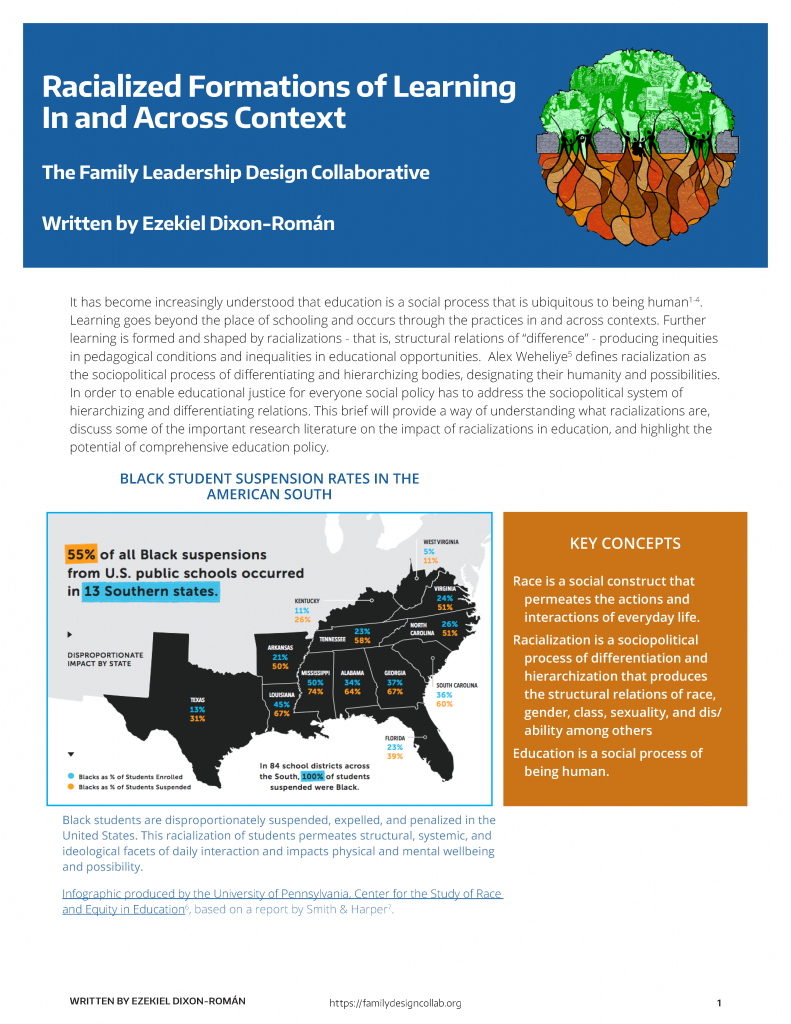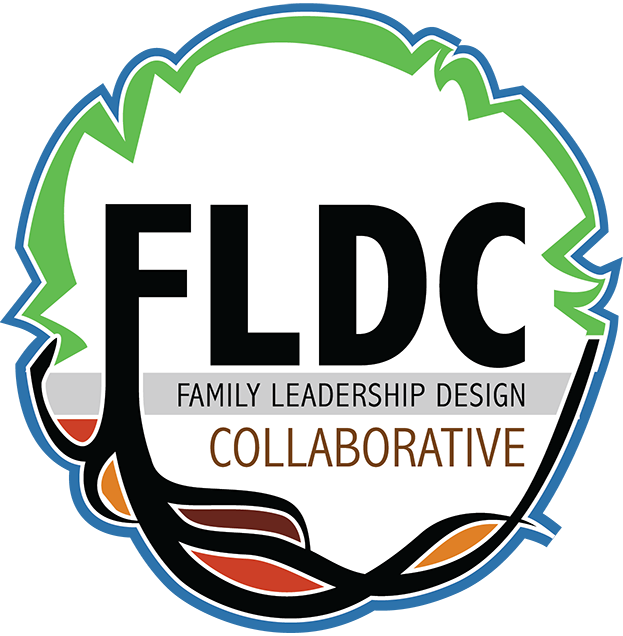This research brief, written by Ezekiel Dixón-Roman, provides a way of understanding what racializations are, discusses some of the important research literature on the impact of racializations in education, and highlights the potential of comprehensive education policy.
“To address the concerns of racialized formations of learning in and across context, policymakers need to consider social policies that take on a public health ap-proach to education. Education, like racialization, is a so-cial process that is ubiquitous in the everyday acts and interactions of being human. Policy approaches, then, are needed that go beyond schooling and directly chal-lenge and mitigate the hierarchizing and differentiating sociopolitical relations in society. This would necessarily include a more comprehensive approach to education that includes spaces and practices such as libraries, mu-seums, childcare centers, health education and clinics, afterschool programs, parenting practice workshops, prenatal services, mental health services, group coun-seling, among many others1. These social policies not only need to address inequities in structural arrange-ment and ecological conditions but also do the social and cultural work of radically shifting ideologies of differ-ence”




